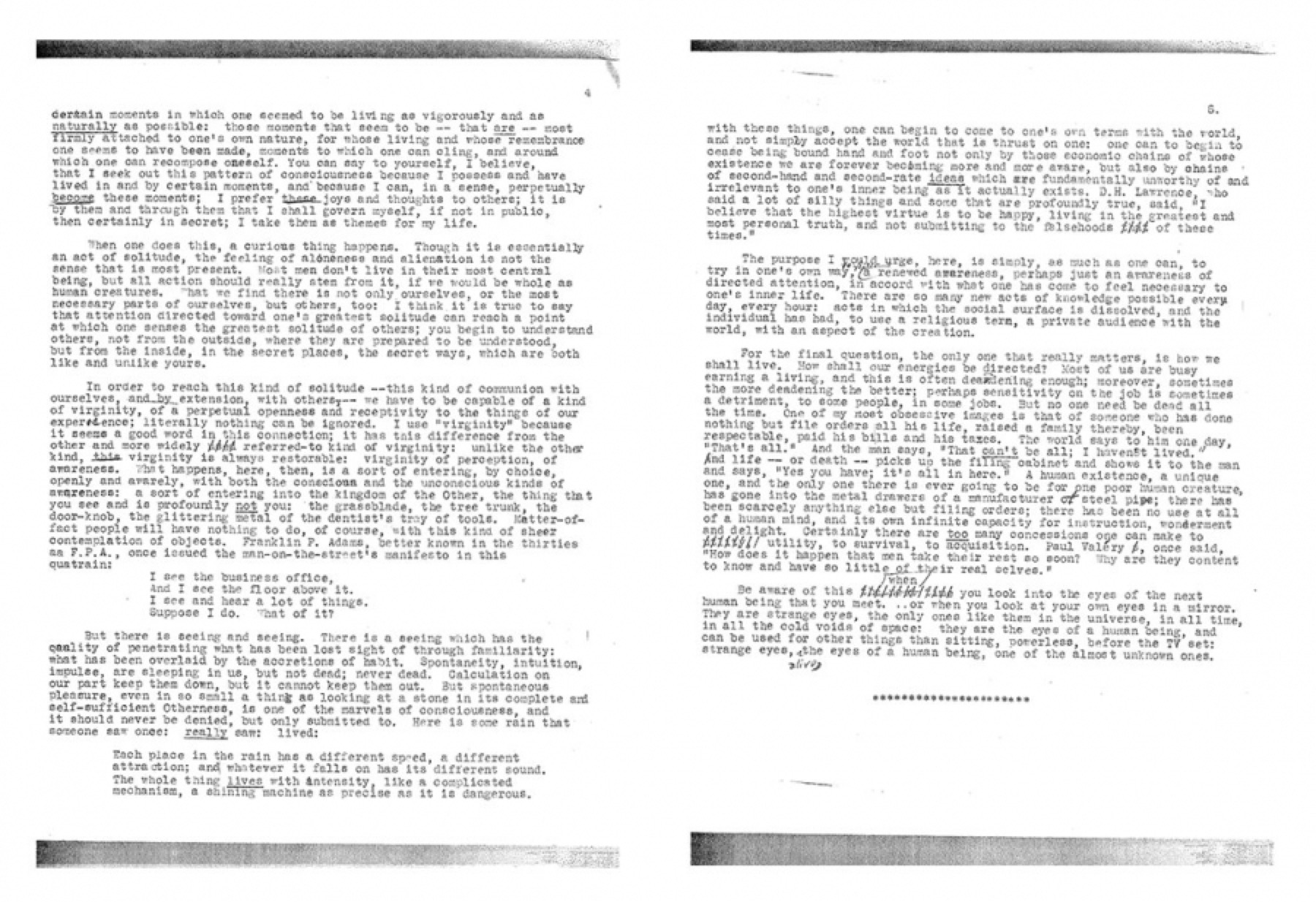
Pages from the original manuscript, James Dickey papers, Stuart A. Rose Manuscript, Archives, and Rare Book Library, Emory University
The Necessity of the Other
By Casey Clabough
Notes on the manuscript
From the 100th issue: “The Kingdom of the Other,” by James Dickey
Icame across the manuscript containing “The Kingdom of the Other,” along with the previously unpublished short story “The Eye of the Fire” (which appeared in Issue 39 of this magazine in the summer of 2001), while conducting research at Emory University for my 2002 book Elements: The Novels of James Dickey. Both documents appeared in his papers among other unpublished typed manuscripts of lesser literary quality on thin, faded pages. The essay, originally composed during the 1950s, investigates the creative process in the context of individual solitude. It contains philosophical declarations similar to those found in Dickey’s books Self-Interviews (1970) and Sorties (1971). Yet whereas those volumes at times come across as self-indulgent, presenting with occasional pomposity claims about other writers and the nature of existence, “The Kingdom of the Other” maintains a strong formal voice and frequently invokes the thoughts of others to bolster its various assertions.
Dickey was terrified of living an unexamined life, and he employed this technique, the imagining of the Other—the beings and places which were remote from his own biographical self—as a necessity to fuel creation, both in his writing and personal life. As a onetime advertising writer, he intimately knew what it was to toil in the nine-to-five corporate marketplace and viewed writing as a nocturnal escape. He liked to say he was selling his soul by day and winning it back at night. And his explorations of the Other resulted in some of the most powerful (and controversial) aspects of his work: The mountain people in the novel Deliverance and the plummeting stewardess in the oft-anthologized poem “Falling” are but two examples.
Having recently experienced an extended life-changing illness, I was pleased to encounter Dickey’s essay again upon its overdue publication and reflect on its implications for my own existence going forward. We all have decisions to make, particularly in these times, regarding whether or not to contemplate and engage the Other. The act might prove uncomfortable, fearful, even traumatizing, but for the artist who braves such consequences the potential findings and achievements remain immense.
Enjoy this story? Subscribe to the Oxford American.

